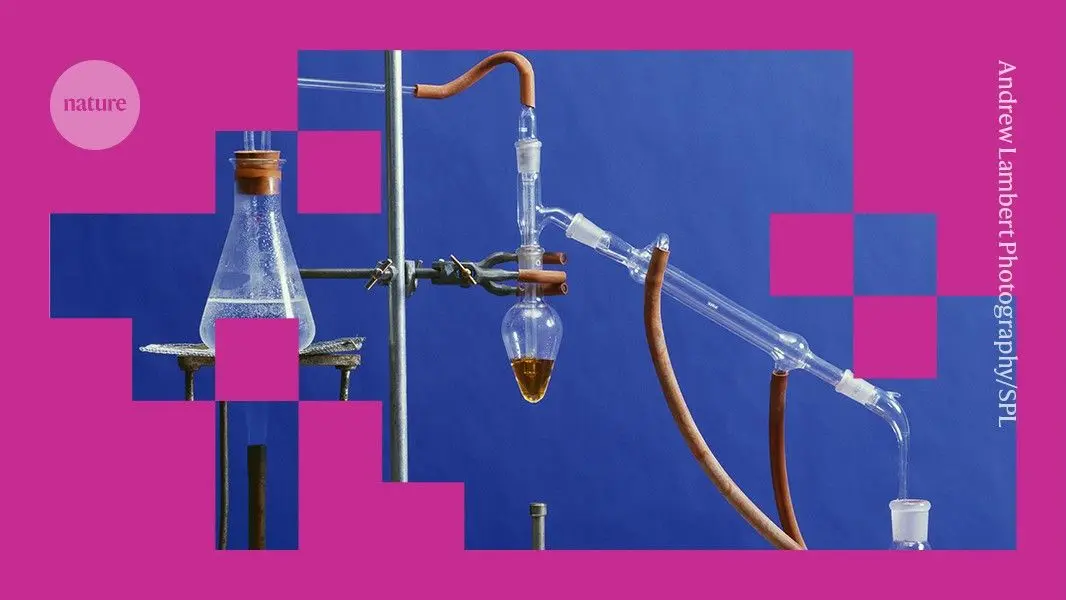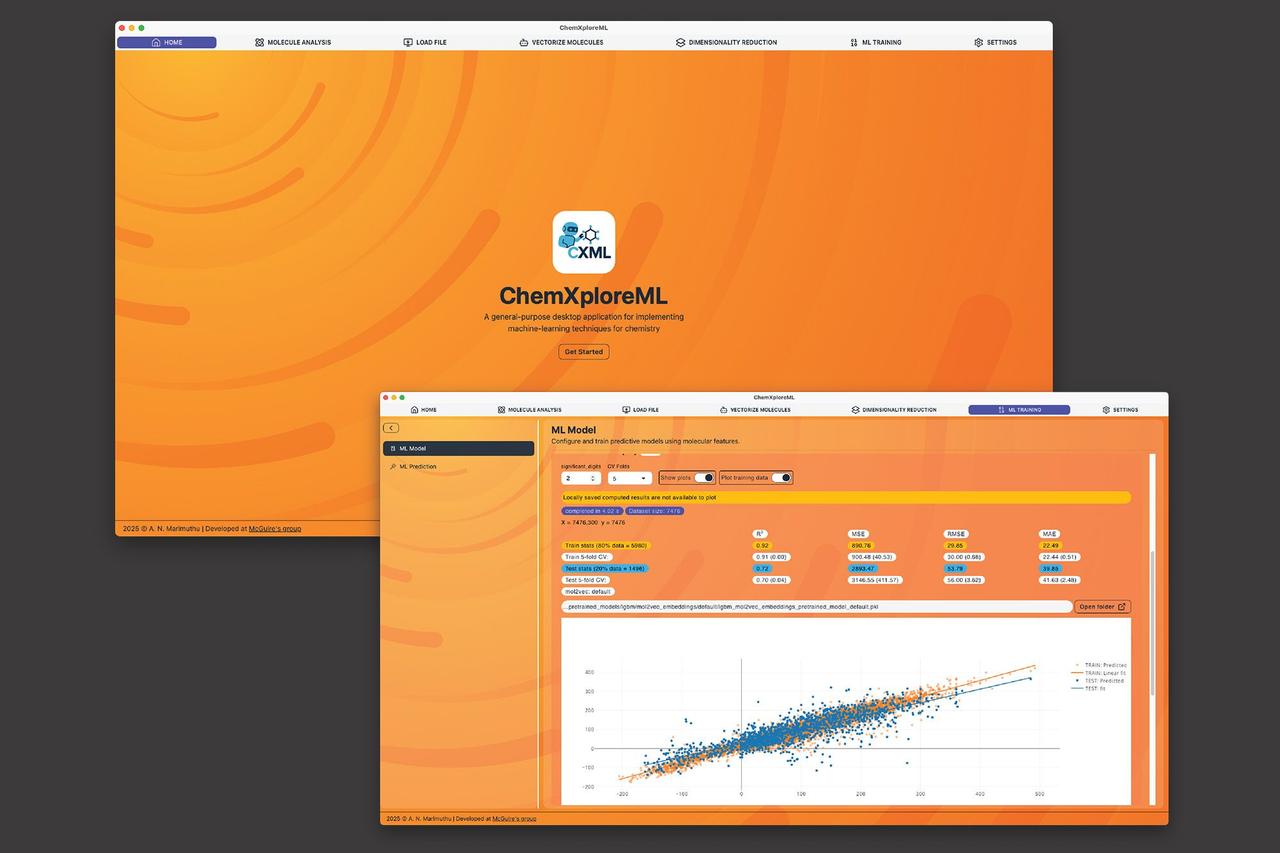AI and Robotics Revolutionize Chemical Analysis: FSU Researchers Develop 99% Accurate Image-Based Identification Tool
2 Sources
2 Sources
[1]
'Democratizing chemical analysis':Chemists use machine learning and robotics to identify chemical compositions from images
Florida State University chemists have created a machine learning tool that can identify the chemical composition of dried salt solutions from an image with 99% accuracy. By using robotics to prepare thousands of samples and artificial intelligence to analyze their data, they created a simple, inexpensive tool that could expand possibilities for performing chemical analysis. The work was published in Digital Discovery. "We are living in the age of artificial intelligence and big data," said co-author Oliver Steinbock, a professor in the FSU Department of Chemistry and Biochemistry. "We thought that if we used sufficiently large databases with enough pictures of different compounds and stains, we could maybe use AI to determine what the composition is." The research could make possible cheaper, faster chemical analysis that could be used in space exploration, law enforcement, home testing and more. HOW IT WORKS This paper builds on a previous study from Steinbock's lab in which researchers used machine learning to identify the chemical composition of salt stains from photos. In that study, the researchers analyzed about 7,500 samples, which they prepared by hand. This paper amplifies that work by using a robot to process samples that were later analyzed by an improved machine learning program. Instead of hand-pipetting samples, the researchers created what they named the Robotic Drop Imager, or RODI, which is capable of preparing more than 2,000 samples per day. That allowed them to build a library of more than 23,000 images -- more than three times as large as their original study. After preparing samples and taking photos, the researchers simplified each image by converting them to grayscale, then extracted 47 features, such as pattern area, brightness and other attributes, which they used in their analysis. With additional images, the accuracy of their machine learning program increased from around 90% to almost 99%. The researchers also analyzed the initial concentration of the salt solution at five different levels and trained their machine learning program to distinguish among them. The program reached 92% accuracy in identifying the concentration of the solution and the salt's identity. "The accuracy demanded in different analyses will vary depending upon the situation," said paper co-author Amrutha S.V., a postdoctoral researcher. "From my experience, I know that some types of spectroscopy and other analysis methods are expensive and require specialized technical expertise to operate. That's why I'm excited about the possibility of a simple method -- just taking a photo to determine chemical composition. That would be incredibly useful." WHY IT MATTERS Most chemical analysis methods focus on the molecular level, examining atoms, molecules or crystal structures. "That works great if you have good samples, a few hundred thousand dollars for the instruments and no weight restrictions," Steinbock said. "But if you want to go on a space mission and ship things to a moon of Saturn, for example, every gram matters. If you can do chemical analysis with a camera, that's a game changer.' The project was developed for NASA, which was looking for inexpensive, low-cost, low-weight methods for determining chemical concentrations. Instead of transporting samples to Earth, an extraterrestrial rover equipped with a simple chemistry lab and camera could analyze the chemical composition of materials on site. Along with space exploration, the method developed in Steinbock's lab could be used to provide chemical analysis for other applications. The testing relies on minute sample amounts -- just a few milligrams -- making it valuable in scenarios where obtaining large samples is difficult. Law enforcement could run preliminary tests on suspected drugs, laboratories could test spilled materials for safety, and hospitals without access to a full chemical analysis lab could use it to aid diagnoses for patients. "This is important because it could democratize chemical analysis," Steinbock said. AI: A NEW TOOL FOR RESEARCH Artificial intelligence promises to transform what is possible in research. Faculty at Florida State University are engaging in innovative projects that push the boundaries of this rapidly developing tool. FSU's artificial intelligence efforts are providing tools and insight for faculty in teaching and researching. "I think it's very helpful to be at a place where you get this kind of support, and it doesn't necessarily have to be money, but just appreciation for trying new things," Steinbock said. "AI is changing how we approach scientific discovery. What once required expensive equipment and specialized expertise can now be done with a simple camera and the right algorithm. This opens up new possibilities -- not just for space missions, but for medicine, forensics and beyond." Additional co-authors on this paper were Bruno C. Batista of FSU, Jie Yan of Bowie State University and Beni B. Dangi of Florida A&M University. This project was supported by NASA.
[2]
'Democratizing chemical analysis': FSU chemists use machine learning and robotics to identify chemical compositions from images | Newswise
A closeup view of the salt stain drops analyzed by the research team. Florida State University chemists have created a machine learning tool that can identify the chemical composition of dried salt solutions from an image with 99% accuracy. By using robotics to prepare thousands of samples and artificial intelligence to analyze their data, they created a simple, inexpensive tool that could expand possibilities for performing chemical analysis. The work was published in Digital Discovery. "We are living in the age of artificial intelligence and big data," said co-author Oliver Steinbock, a professor in the FSU Department of Chemistry and Biochemistry. "We thought that if we used sufficiently large databases with enough pictures of different compounds and stains, we could maybe use AI to determine what the composition is." The research could make possible cheaper, faster chemical analysis that could be used in space exploration, law enforcement, home testing and more. This paper builds on a previous study from Steinbock's lab in which researchers used machine learning to identify the chemical composition of salt stains from photos. In that study, the researchers analyzed about 7,500 samples, which they prepared by hand. This paper amplifies that work by using a robot to process samples that were later analyzed by an improved machine learning program. Instead of hand-pipetting samples, the researchers created what they named the Robotic Drop Imager, or RODI, which is capable of preparing more than 2,000 samples per day. That allowed them to build a library of more than 23,000 images -- more than three times as large as their original study. After preparing samples and taking photos, the researchers simplified each image by converting them to grayscale, then extracted 47 features, such as pattern area, brightness and other attributes, which they used in their analysis. With additional images, the accuracy of their machine learning program increased from around 90% to almost 99%. The researchers also analyzed the initial concentration of the salt solution at five different levels and trained their machine learning program to distinguish among them. The program reached 92% accuracy in identifying the concentration of the solution and the salt's identity. "The accuracy demanded in different analyses will vary depending upon the situation," said paper co-author Amrutha S.V., a postdoctoral researcher. "From my experience, I know that some types of spectroscopy and other analysis methods are expensive and require specialized technical expertise to operate. That's why I'm excited about the possibility of a simple method -- just taking a photo to determine chemical composition. That would be incredibly useful." Artificial intelligence promises to transform what is possible in research. Faculty at Florida State University are engaging in innovative projects that push the boundaries of this rapidly developing tool. FSU's artificial intelligence efforts are providing tools and insight for faculty in teaching and researching. "I think it's very helpful to be at a place where you get this kind of support, and it doesn't necessarily have to be money, but just appreciation for trying new things," Steinbock said. "AI is changing how we approach scientific discovery. What once required expensive equipment and specialized expertise can now be done with a simple camera and the right algorithm. This opens up new possibilities -- not just for space missions, but for medicine, forensics and beyond." Additional co-authors on this paper were Bruno C. Batista of FSU, Jie Yan of Bowie State University and Beni B. Dangi of Florida A&M University. This project was supported by NASA.
Share
Share
Copy Link
Florida State University chemists have created a machine learning tool that can identify the chemical composition of dried salt solutions from images with 99% accuracy, potentially democratizing chemical analysis for various applications including space exploration and law enforcement.

Breakthrough in Chemical Analysis Using AI and Robotics
Researchers at Florida State University (FSU) have developed a groundbreaking machine learning tool that can identify the chemical composition of dried salt solutions from images with an impressive 99% accuracy
1
2
. This innovative approach combines robotics and artificial intelligence to create a simple, inexpensive method for chemical analysis, potentially revolutionizing various fields including space exploration, law enforcement, and home testing.The Evolution of the Research
The current study builds upon previous work from Professor Oliver Steinbock's lab at FSU. In their earlier research, the team manually prepared about 7,500 samples and used machine learning to identify chemical compositions from salt stain photos
1
. The new study significantly amplifies this work by introducing robotics and an improved machine learning program.Robotic Drop Imager (RODI): Accelerating Sample Preparation
A key innovation in this research is the development of the Robotic Drop Imager (RODI). This robotic system can prepare more than 2,000 samples per day, allowing the researchers to build a library of over 23,000 images - more than triple the size of their original study
1
2
. This dramatic increase in sample size played a crucial role in improving the accuracy of their machine learning program.Advanced Image Analysis and Machine Learning
The research team employed sophisticated image processing techniques to enhance their analysis:
- Converting images to grayscale
- Extracting 47 features, including pattern area and brightness
- Using these features to train the machine learning program
This approach resulted in the accuracy of their AI tool increasing from around 90% to almost 99%
1
2
. Furthermore, the program achieved 92% accuracy in identifying both the concentration of the solution and the salt's identity across five different concentration levels.Implications and Potential Applications
The simplicity and accuracy of this method open up numerous possibilities for chemical analysis:
- Space Exploration: NASA, which supported this project, could use this technology for on-site analysis during extraterrestrial missions
1
. - Law Enforcement: Preliminary tests on suspected drugs could be conducted quickly and efficiently
1
. - Medical Diagnostics: Hospitals without access to full chemical analysis labs could benefit from this tool
1
. - Environmental Monitoring: Quick analysis of spilled materials for safety assessments
1
.
Related Stories
Democratizing Chemical Analysis
Professor Steinbock emphasizes the democratizing potential of this technology: "If you can do chemical analysis with a camera, that's a game changer"
1
. The method requires only minute sample amounts - just a few milligrams - making it valuable in scenarios where obtaining large samples is challenging1
.The Role of AI in Scientific Discovery
This research exemplifies how AI is transforming scientific discovery. As Steinbock notes, "What once required expensive equipment and specialized expertise can now be done with a simple camera and the right algorithm"
2
. This shift not only reduces costs but also opens up new possibilities across various scientific disciplines.Future Directions
While the current research focuses on salt solutions, the potential applications of this technology are vast. As AI and robotics continue to advance, we can expect to see similar approaches applied to more complex chemical analyses, further democratizing access to scientific tools and knowledge.
References
Summarized by
Navi
[1]
Related Stories
AI in Chemistry breakthrough: Two systems accelerate molecule design and drug discovery by 10x
29 Jan 2026•Science and Research

AI-Driven Mobile Robots Revolutionize Chemical Synthesis Research
07 Nov 2024•Science and Research

MIT Researchers Develop ChemXploreML: A User-Friendly AI App for Chemical Property Prediction
25 Jul 2025•Science and Research

Recent Highlights
1
ByteDance Faces Hollywood Backlash After Seedance 2.0 Creates Unauthorized Celebrity Deepfakes
Technology

2
Microsoft AI chief predicts artificial intelligence will automate most white-collar jobs in 18 months
Business and Economy

3
Google reports state-sponsored hackers exploit Gemini AI across all stages of cyberattacks
Technology





